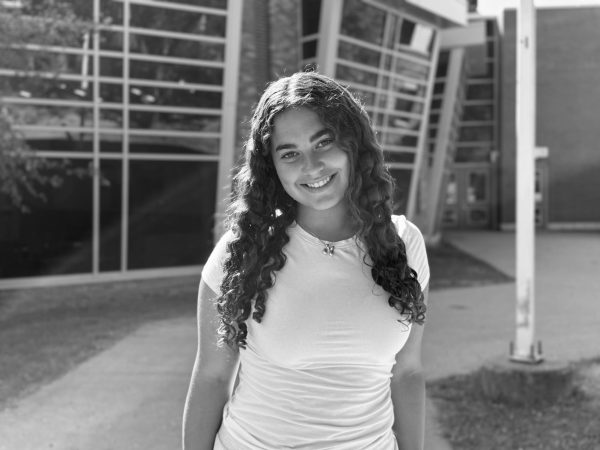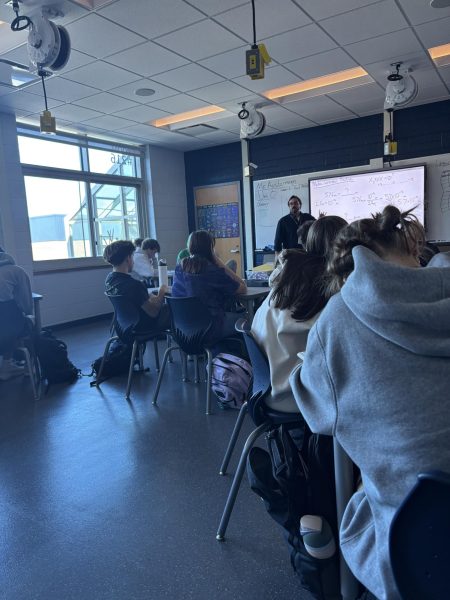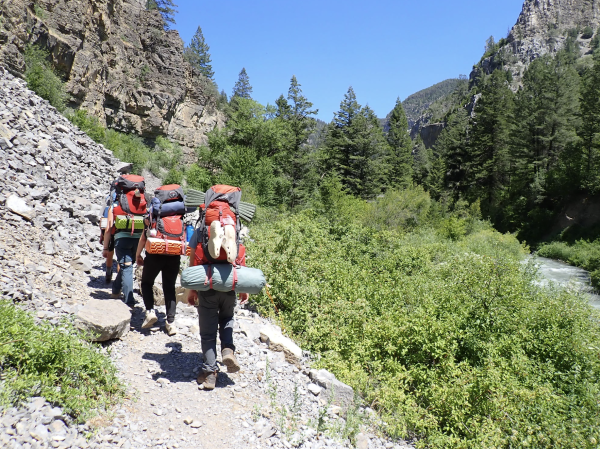The Motives Behind Caffeination Nation
Most of the student population of BHS is addicted to a drug. We have almost unfettered access to this drug. Between energy drinks and coffee, teens are drinking a significant amount of this drug each day. You can get this at schools, homes, and even some restaurants. Although the amount of this drug in one cup of coffee won’t hurt you, it can get addicting very quickly. The drug, of course, is caffeine. High school students are especially affected by caffeine addictions. What we don’t know is how this affects them or why teens feel the need to start drinking caffeine when they know it’s a bad addiction.
I interviewed two students and one teacher at Berkley about drinking caffeine. I talked to a Freshman, Theresa Soloman, about her caffeine addiction. “I started drinking caffeine at 11 years old,” Solomon claimed. “I started drinking coffee and energy drinks because I had early morning practices for ice skating,” she explained. When I asked her why she needed the caffeine, she replied, “It gives me energy. Even though it makes me jittery, it helps a lot.” After a while, she realized that it was an addiction, and she couldn’t wake up without it. Solomon is not alone. An article by Oak Hills School District gives evidence, “Many claimed they drink coffee in the morning to stay awake because they don’t get enough sleep at night.” Even though Soloman knows it’s an addiction, she continues to drink caffeine because she relies on it.
Caffeine can cause many health issues in the community of teens. Energy drinks can cause many health issues with one’s heart. An article by Texas Health explains a study published in the Journal of Addiction Medicine, evidence suggests that the high levels of caffeine in energy drinks may be a reason for cardiac issues, such as arrhythmia. Coffee won’t cause too many health complications unless you drink too much. Energy drinks are not good for anyone’s health, especially those already struggling with heart issues.
The next student I interviewed was sophomore Sari Wagner. “I’m not addicted to caffeine, but I do drink it most mornings,” Wagner shared. She said, “At first, I started drinking chai tea lattes in high school, but then recently, I have been adding espresso,” Wagner didn’t start drinking the caffeine for energy or to stay awake. she just thought it tasted good. “I definitely don’t rely on it, though,” she says. Since she’s not drinking it for energy, she doesn’t feel the need to rely on caffeine.“Even though I’m not addicted to caffeine, I notice how bad the addiction can get because people in my household can’t leave the house without it,” she mentions. Wagner doesn’t feel that much of an impact when drinking this caffeine, but it could be because it’s not as strong as some other versions of caffeine.
Lastly, I interviewed a teacher here at Berkley, Ms. Rathburn, who teaches Advanced Earth and Space, and Astronomy. I interviewed her to see the impacts coffee has had through the years. She started drinking coffee in college, but throughout high school, she drank pop.“I don’t really drink pop anymore. Instead, I have about two cups of coffee a day,” she says. Although she drinks it daily, she’s not drinking it for the caffeine. At first, she may have started drinking it for the caffeine, but she said, “I don’t need the caffeine for energy.” Once Ms. Rathburn started drinking it, it became a routine. “When you start drinking coffee, it becomes a habit. I don’t use it to wake me up,” she shared. Since she doesn’t use caffeine as an energizer, she doesn’t rely on it, but she does feel the need to drink it every day because of her routine. Because of this, she doesn’t think of it as an addiction, but she notices if she doesn’t have a cup, she wants it. Although she doesn’t think of coffee as an addiction or bad for you, she knows energy drinks are bad for you, and she discourages the use of energy drinks.
From the perspective of three different people, each one had a different view of caffeine. Soloman relies on it, Wagner sees the addiction in others, and Rathburn drinks it every morning but doesn’t rely on the effect of caffeine. They all know it can be a bad addiction that you rely on, even if they don’t have that addiction. At the young ages of the two students, their need for caffeine may worsen over the years. If the addiction to caffeine gets worse, functioning without will be difficult. From the perspective of an adult who drinks coffee every morning, we can see that since she started drinking it, she feels the need to have some every morning, even if it’s not for energy. After seeing how the three people have adapted to caffeine, I think it’s concluded that caffeine can become a bad addiction that you rely on to function. Caffeine shouldn’t be advertised to a young population so often. Since it’s advertised everywhere, so many teens drink it. Caffeine shouldn’t become a daily routine that you rely on, you don’t want it to become a need to function every morning.

Hi! My name is Molly Frankel and I am so excited to be one of The Spectator’s Editors-in-chief alongside Maddie Collins. This is my fourth year on staff,...






